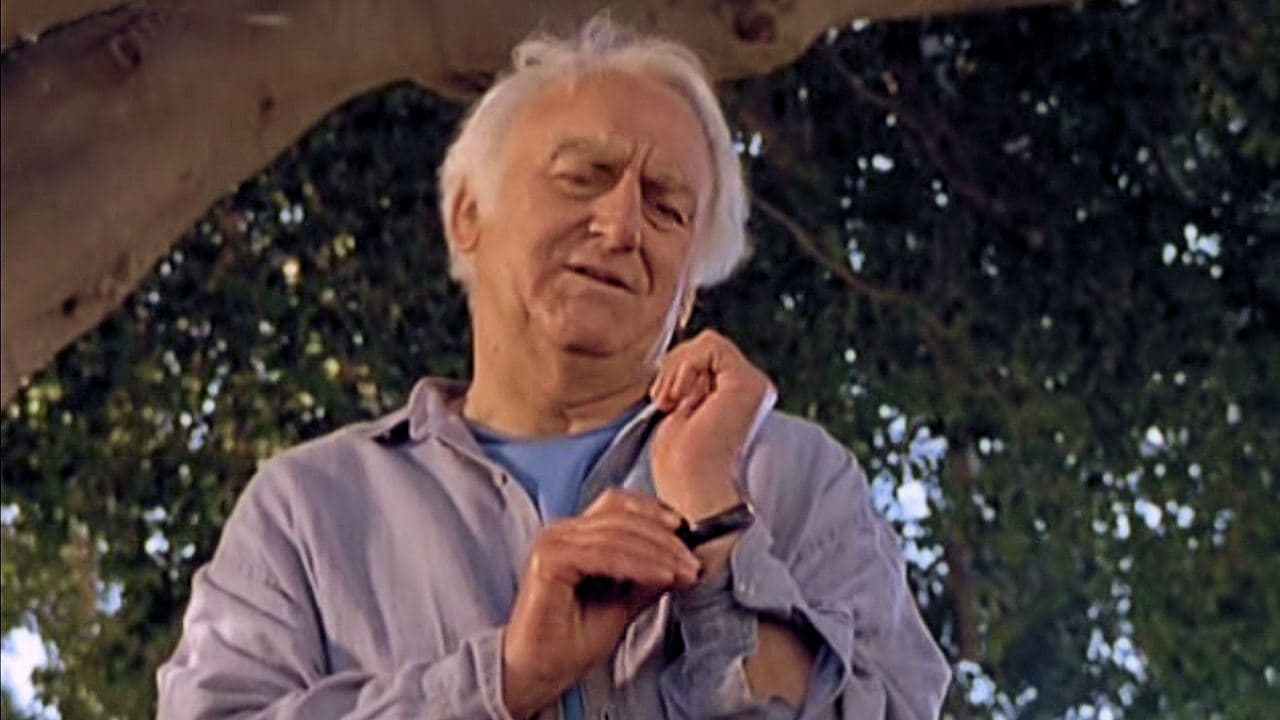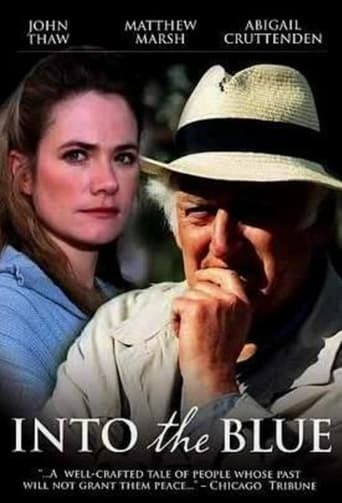

While a bit of Inspector Morse comes through, Thaw pulls it off with a working class persona. We get to follow him through his investigation, and this is the most appealing type of mystery for me. Thaw's Harry Barnett is as tenacious as is his Morse (created by novelist Colin Dexter). Harry is driven mostly by two forces, his attempt to disprove his involvement in a disappearance of a woman and his lifelong relationship with a wealthy former politician, Alan Dysart. But the more questions he asks, the more questions arise about his longtime friend. The connection between the very beginning of the film and its ending works, provides an added twist (there is one right before the end as well), and brought the (film) story full circle, including the exchange of an important gift between two main characters (Barnett and Dysart), bound together through life experiences. You will not be disappointed. As an author of mystery novels and an observer of the two industries (print & film), the media are so different that I often discount the "it did not follow the book" criticisms. Most viewers of the film never have nor ever will read the novel. We writers need to bank the movie checks and move on to the next book.
... View MoreHaving been dismayed by many tawdry TV rewrites of perfectly good books, I can understand why the "Into the Blue" author and many readers would be apoplectic after watching this. Instead of gasping at the thrills and chills in this TV movie, those who read the book first will merely gasp in surprise at how well over half of anything to do with it has been radically altered for this film, including the most major characters and plot twists.That any major changes should occur is not a surprise, however. Indeed, one wonders just why the producers chose to film this book of all things. There was just no way 400 pages of dense, hard paragraphs and exhaustive backstory (all in tiny font) could've made a film of 110 or so minutes. Despite having some compelling drama and ideas, frankly the book can afford to lose perhaps 100 pages.Even so, by the standards of adaptations, this film's condensations and rewriting are savage. I read the book second, then revisited the film. Thus for me, it's rather a hoot how the film broadcasts right from the start how it's spared nothing in its rewriting. In the first five minutes, Harry Barnett shows someone a portrait of Alan Dysart's wife, a small but important (and alive) supporting character in the book. Harry reports that she died of cancer 2 years ago, then moves on without another word. That's that for wifey! But the film gives us a decent enough TV movie thriller. Its technique is plain, typical for TV movies, but offers attractive sets, location shootings, and cinematography. The book has its share of melodrama, but the film really ups the thriller factor, which gets clichéd but still fun.The altered story also retains much of what worked best in the book's drama: Harry Barnett's central quest, and an interesting friendship with the vivid, yet inscrutable Alan Dysart.True, the film is clichéd in how it sets up Harry's private investigation of Heather Mallender's disappearance. The usual "innocent man must launch his own private investigation to clear his name, while the authorities hassle him and do nothing useful." But it keeps the device of Harry obtaining photos Heather has shot, and using them to retrace her own investigative journey from the past. The film gets great cinematic fun out of this -- Harry will give us a close-up view of a photo of a building; then the shot pans up to show the actual building, proving that he's on the right track.Alan too remains compelling: a well-fed and well-groomed man of power (love the suspenders) who's generous, supportive, yet ambiguous. (The film errs a little by making him ambiguous from the start.) Forever helping Harry out of trouble, Alan provides one of the most gripping dramatic moments when Harry declines to do him a major favor. Alan stops and glares at him, and complains to Harry for the first time. "It's the only favor I've ever asked of you." Immediately he departs in defeat. We feel the pain and guilt such an accurate criticism must've made to Harry.Unfortunately, the film glosses over their surprising drama at story's end.Zora Labrooy, friend of Heather and secretary to a shifty psychologist, provides another strong character and relationship for Harry. Despite rewrites, her essential elements are largely the same. The investigation pushes her to become an ally and assistant to Harry. Besides its own ambiguity, this friendship is made interesting by an increased, constant tension and fragility. They're never sure they can trust or find a real use for each other.Also of note is John Thaw, who provides the right dramatic gravitas whenever required. It's also fun to see him convincingly play a cockney man of modest background, in contrast to his famous role of cultured Inspector Morse.
... View MoreInto the Blue is the story of Harry Barnett (John Thaw), an easy-going failure who lives on Rhodes as the caretaker of a house belonging to his good friend, the wealthy Allan Dysart (Matthew Marsh). They've known each other for years. One night Harry meets Heather Mallender (Abigail Cruttenden) on the beach. He takes her back to the house. They spend two or three days together...then she disappears. The Rhodes police think Harry might of killed her. Dysart shows up and gets him out of jail. Harry immediately leaves for London to find out more about Heather. Among the things he finds is that her sister died mysteriously and that Dysart had employed her. It's not long before unpleasant things begin to happen to Harry. Into the Blue is a lumbering mystery, filled with camera shots peeking threateningly from the bushes and around the sides of trees, with the occasional heavy breathing we can hear off camera, with an ominous score filled with musical clichés and with obviously suspicious characters lurking after Harry. It also has several people who are efficiently converted into corpses. That's not a bad thing, especially as we realize all the corpses when they could move on their own had some kind of relationship with Allan Dysart John Thaw, as great a television actor as he was, looks too old for the part. He was 55 and could have passed in bad light for 65. His bed scene with Cruttenden could have been a young woman in bed not just with a man old enough to be her father, but her grandfather. And Thaw not just looks ten years older than Dysart, his employer, friend, protector, rich businessman, former politician and widower, which would be appropriate to the plot, Thaw could pass for 20 years older. This isn't just being picky, it's one of the factors that disrupts the story and turns Into the Blue from a clunky but intriguing mystery into a clunky, intriguing mystery which primarily is a vehicle for Thaw. But, oh, what potential. As old as Thaw looks he is still a hugely engaging, likable, and intelligent actor. The storyline is clever, with a puzzle that would have fascinated Inspector Morse. The final realization of the motivation for the murders is carefully disguised and so is the killer. The conclusion is melodramatic but it works. The skill of the other actors generally is first rate. I like complex, murderous mysteries with plots that play more or less fair with the viewer and that show some restraint. I like John Thaw. That's enough for me to enjoy Into the Blue and watch it more than once. Give it a try. Even with its weaknesses you might enjoy it, too. One of the things I admire about Thaw is that as comfortable an acting life as he could have had after Morse took off, he kept taking roles every year or so that offered different challenges. Some of them, like Monsignor Renard, were, in my opinion, well made. Some, like Goodnight Mr. Tom, were close to being mawkish (again, just opinion), and some, like A Year in Provence, were a delight. Part of the success of the latter, I think, is that it gave Thaw an equally good actress to play off of. Lindsay Duncan was just as effective and charming as Thaw.
... View MoreRobert Goddard's splendidly crafted novel brought to the small screen. But Goddard must have been heartbroken to see how his work was changed for television production. John Thaw seems to struggle with a role for which he is completely miscast; and with the whole tenor of the plot changed for compression into a two hour format, this must be one of the more disappointing television adaptations of recent times.
... View More